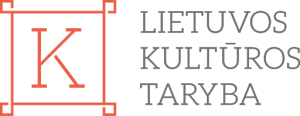#12 NON-COLOBORATION - ON SCULPTURE
Tactics of cultural resistance
Why the talk is inspiring?
When and how can an artist avoid serving a client? Is it true that creative alternative will eventually be recognised and become sought-after? Will creative people dominate the world, because they are the only ones who can withstand all-embracing excess, Asia and automation?
Discussion with anthropologist Jaketerina Lavrinec, historian Aurimas Švedas and innovation consultant Eigirdas Žemaitis moderated by Elona Lubytė.
The talk is held on Thursday, 8.00 p.m. at the National Art Gallery (NDG), Konstitucijos av. 22, Vilnius. Entrance is free of charge.
2014
Speaker
Jekaterina Lavrinec (LT), Eigirdas Žemaitis (LT), Aurimas Švedas (LT)
How the speaker is exceptional?
Anthropologist.
RECOMMENDS TO READ
A Whole New Mind: Why Right-Brainers Will Rule the Future
Daniel H. Pink
Why the book is worth reading?
In his book D. H. Pink expresses his expectations that the future will belong to creative thinkers: artists, inventors and story tellers. Six aptitudes characteristic to the future leaders are revealed: inventiveness, empathy, ability to attribute meanings to world phenomena, etc. The author uses the metaphor of brain hemispheres to highlight new creative ways to navigate in the volatile todays’ world.
Recommended by Eigirdas Žemaitis.
RECOMMENDS TO READ
THE MAKING AND BREAKING OF SOVIET LITHUANIA: MEMORY AND MODERNITY IN THE WAKE OF WAR
Violeta Davoliūtė
Why the book is worth reading?
The author analyses the influence of such traumatic events as the Holocaust, deportations and collectivisation on the Soviet Lithuanian social and cultural development. To discuss the aforementioned events V. Davoliūtė chooses the point of view of the 1930s generation and mostly those who managed to “successfully adapt” or “feel happy” during the Soviet years. She describes a poet Justinas Marcinkevičius as a symbolic personality of the period.
The book discusses “how the youngsters, who returned to the empty cities after the war and later on became the nucleus of the Soviet cultural elite, changed in the new environment and transformed it themselves. How did they combine the idea of a national state coming from the interwar Lithuania with the Soviet ideology? How did the fact that there were barely any Jews or Polish left in Vilnius and other cities influenced the subsequent development of the Lithuanian society and culture?”
Recommended by Aurimas Švedas.

